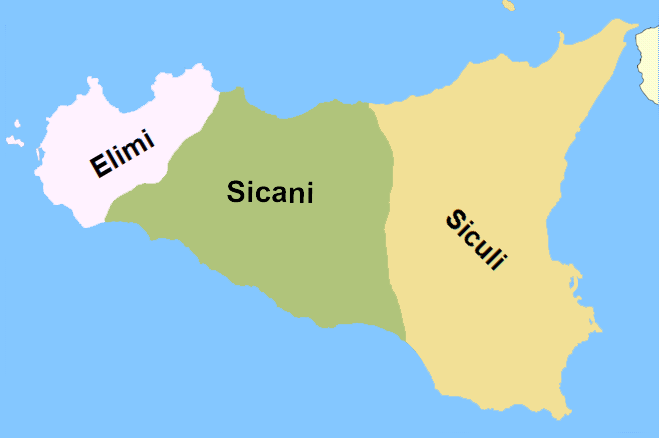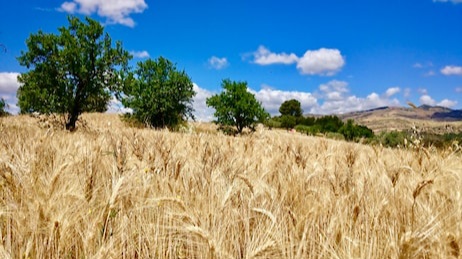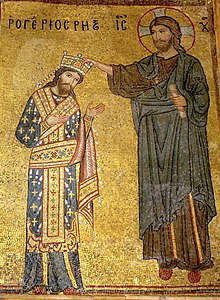The Stuff We're Made Of
- La Siciliana
- Oct 18, 2020
- 6 min read
My physical features have always prompted questions about my ethnicity.
Are you Spanish?
Are you Arabic?
Are you Greek?
Are you Italian?
The question usually depends on who is asking. I suppose not much has changed for Sicilians; everyone wants to lay claim to us. My answer never fails to confuse them. "Right now? I'm Italian, but yes, I am Spanish, Arabic, and Greek. I am also Norman, French, and the list goes on from there." In truth, I have no idea what blend of ethnicities makes up my unique DNA, but I enjoy the game.
To understand the Sicilian psyche, you must first understand their history. I will attempt to layout the
good, the bad, and the ugly in so far as I currently understand it.

The earliest known inhabitants of Sicily are known as the Elymains, the Sicanians, and the Sicels. Very little is known about these tribes except that they were nomadic, pastoral, and absorbed easily (ish?) into later, more dominant cultures.
Beginning around 700 BCE, a branch of the Phoenicians, destined to be known as the Carthaginians, began to explore and colonize Sicily's western half.

Meanwhile, Greek colonies and the city-state of Syracuse started to grow and prosper in the eastern half. The continued encroachment of Catherginian interests, coupled with the establishment of Greek colonies, forced the indigenous inhabitants to move further and further inland, fight a series of losing battles, or ally and integrate with the two powers that continued to grow exponentially.

It was only a matter of time before this cauldron would attract the attention of the growing power directly north of the island. A republic had grown to be the dominant power on the peninsula of Italy. Thus far, it had not ventured out to sea and had been content to limit its expansion to the mainland. In 265 b.c., due to the actions of a minor power that ruled over Messina, a new player would enter the ongoing series of wars in Sicily: The Romans had arrived.
What quickly escalated was nothing short of a World War. The first Punic war had begun. The Greeks quickly became minor players in the conflict, while the major powers, Carthage and Rome, fought over Sicily's destiny. The war lasted years, and both sides suffered tremendously, but in the end, Sicily became a Roman province. Syracuse was an independent city-state that existed with Rome's sanction for a while, but in time, the proud city fell to Rome as well. Carthage had to abandon Sicily altogether, and the island was forever lost to them.
There would be two more world wars in the years that followed, known as the second and third Punic wars, respectively. Carthage would be utterly destroyed, Greece itself would fall to Rome's expanding dominion, and the entire Mediterranean would be a roman sea for the next 500 years.
Sicily became the breadbasket of Rome. Her wheat fields furnished the Roman Republic with the food it needed to expand and dominate the Mediterranean basin, expand into northern Europe, and become a mighty empire in time.
The years were filled with stability, wars were no longer a reality on the island, and Sicily prospered. However, once the empire expanded and brought Egypt into its dominion, the island's priority status diminished. Egypt became the new breadbasket of the empire, and Sicily took a back seat to the new and exotic province in the east.
And yet, Sicily did well in the years that followed.
There simply wasn't any regional power that could ever threaten the empire, and since Sicily was at the very heart of its domain, Sicily was safe.
In the fifth century AD, the western Roman Empire fell. The eastern half, known as the Byzantine Empire, would continue for another thousand years, but Roman domination in the west was no more. A series of successor kingdoms grew up in its place, but nothing could measure up to Rome. And so, Sicily became vulnerable.
The first to swoop in was the Byzantine Empire. In an attempt at Reconquista, the eastern Roman Empire tried to retake and unify the eastern and western territories. It was initially met with some success, but the Byzantines could not maintain their western holdings.
It was the Saracens who swept into Sicily in the 9th and 10th centuries. In roughly 100 years, the Saracen empire cut Sicily away from European control and established a caliphate on the island. They ruled for approximately 300 years, changing the agricultural model, introducing new foods, and investing a vast amount of labor into the island. Sicily was once again a jewel of the Mediterranean.

In the 11th century, at the request of the Papacy in Rome, the Normans invaded (many historians regard this as a proto-crusade). The Norman knights, led by their Lords, invaded the island from east to west in a 30-year campaign that wrested control of the island from the Saracens, ending the caliphate and restoring Sicily to the European sphere of control. The Norman lords ruled wisely and were loathe to dismantle the previous regime's administrative and agricultural advances. They were quick to include and embrace the governing techniques and even Saracens' fashions. Many of the Saracens even elected to stay and work for their new Norman government. The independent Kingdom of Sicily would be free of foreign domination for almost 300 years.
The end of the Norman Kingdom would also be the end of an independent Sicily. Sicily's golden age was over.
Sicily would become part of the Holy Roman Empire in 1194. The Germans would be distant rulers of a remote territory in which they took little interest. This arrangement would be marked with neglect and taxation that would be a sign of things to come.

Following this, Sicily and southern Italy were ruled by various foreign powers. The French and Spanish Kingdoms followed suit after the germans. The French rule ended with a Sicilian revolution known as the "Sicilian Vespers." Still celebrated today, it was heralded by years of mistrust of the French government over their island and the French occupation forces' rough hands.
Remember the Byzantines? Still active in the area, they played their part in inciting the Sicilians to revolt. Additionally, they encouraged the Spanish to assist the revolution and to take the island from the french. The plot, revolution, and conquest succeeded, and Sicily became a territory of Spain.

And just like that, Sicily had become a chess piece in a game of international politics.
Things seemed to have improved (somewhat) under Spanish rule until the world became a lot larger. When the Spanish Empire discovered the new world in the eastern horizons over the Atlantic (Happy Columbus Day), Sicily became a backwater province of little interest whose only relevance to the empire was as a source of taxation. And they bled Sicily dry in an attempt to fund the foreign colonies in the new world.
Even in the age of black powder and cannon, Sicily would suffer.
The island is rich in sulfur, which is a key ingredient in gunpowder. Sicily became a primary source of this valuable commodity, but few Sicilians ever saw a profit from it. The money went from one foreign hand into another foreign hand while Sicilians, often children, were literally worked to death in the mines. Whatever limited money they gained was often lost to the high taxation of the imperial government representatives.
Sicily had become utterly impoverished and neglected.
By the 19th century, the age of the modern nation-state was on the horizon, and revolution was in the blood of much of the island's inhabitants. At the behest of the House of Savoy and facilitated by the British Royal Navy, Guiseppe Garibaldi invaded Sicily with his famous 1,000 red shirts. This was the beginning of the war of liberation and unification. It is the opinion of many that Garibaldi's military adventures would not have gotten far at all without the aid of the Sicilian population.

Many, many, many promises were made to the Sicilians in exchange for this assistance - Few, if any, were kept.
By October 26, 1860, King Victor Emmanuel II of the House of Savoy took on the title of King of Italy. Additional territories would fall into the Italian sphere in the years to follow, and the Kingdom of Italy was born.

Another foreign power again ruled Sicily.
The neglect and poverty would continue just as it had gone on before.
In desperation, starting in the late 19th century and continuing into the 20th century, massive wave after wave of Sicilians would abandon their homeland and immigrate far and wide across the globe in the hopes of finally finding a better life for their families.

So, what does all of this mean? First, as cliche as it might sound, it is essential to know where you come from if you want to know where you are going. Secondly, this rich history has taught me to understand the Sicilians of today. It explains their lack of trust for strangers, their indifference to politics, their unwavering loyalty to their own families, and their bold insistence on being referred to as SICILIAN, not Italian.
But for me, it is much more profound. Through all of this chaos and uncertainty, my ancestors endured. They fought to survive. Maybe at certain periods, they even prospered. But somehow, someway, at some point, eight people got on a boat with the hope for a better future. The most precious commodity they brought with them was this unique culture. I am a product of this culture. It is my hope to pass it on for generations to come.








Comments